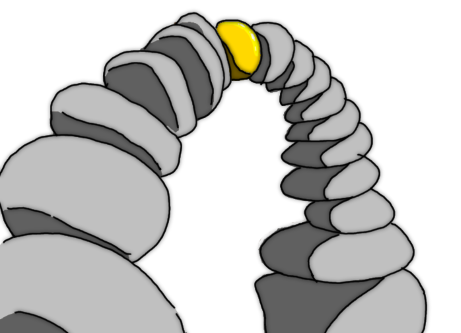Protective Factors for Mental Health
I am not a professional at this, but I just wanted to list and discuss some well known protective factors for mental health.
Answer this quick questionnaire:
- Did you get a good night's sleep last night?
- Do you see your friends often enough?
- Do you have any enjoyable hobbies?
- Do you exercise or get moving every day?
- Do you have close, enjoyable relationships?
- Do you avoid abusing substances like alcohol or other drugs?
- Do you relax and take slow out breaths?
- Do you do things for other people?
- Do you have any awesome pets?
Give yourself:
- 2 points for every "Hell yes!"
- 1 point for every "Almost" and
- 0 points for every "No."
Come back tomorrow and try to increase your score! Even a half-point increase would be a huge improvement to your life.
Here's a few words on each topic....
- sleep routine
- friendships
- hobbies
- daily exercise
- relationships
- substance-not-abuse
- meditation
- altruism
- pets
Sleep routine
The list of benefits from having a good night's sleep are immense. They're covered in depth in the book "Why We Sleep" by Dr Matt Walker.
Sleep is so essential that I almost feel like no other problem can be conclusively diagnosed in the face of a sleep deficit. Think you have ADHD? Make sure you're getting enough sleep and then re-evaluate.
My own struggles to get enough sleep demonstrate that sleep is a "capstone" behavior... unless the behaviors under it are correct, you won't be able to get it right. It seems that if anything in my life is out of order, then I get to bed later. If kids stay up, if I drink alcohol, if there are chores to be done, if I haven't done enough exercise, if i exercise too late, if I'm starving, if i'm trying to meet an impossible deadline... any mistake in the rest of my habits/behavior causes less "sleep opportunity". And it's auto-catalytic... because lack of sleep will greatly increase the chance that those other habits/behavior will get out of line.
Hence if you want to ask me one question and from that find out how every part of my life is going just ask:
Did you get a good night's sleep last night?

Sleep is the golden keystone — that stone at the top of the structure that holds the rest together... but can only stay where it is because of the rest of the stones.
Friendships
There's a classic situation where middle-aged married men find they've done nothing to maintain their relationships with friends, and suddenly they don't have any close friends at all.
If you are in that situation I have a simple remedy: buy a trailer.

As soon as you buy a trailer you will find that long-lost friends and relatives will contact you to borrow it every weekend. And not only will they want to borrow it, they will insist on having you accompany the trailer to donate your time and labor, assisting with: moving furniture, hauling yard materials, disposing of bodies etc.
Ok, perhaps the trailer idea isn't for everyone, and isn't the best way to re-establish old friendships. It's just one option.
Sometimes men prefer "structured" or "transactional" friendships, where there's a "reason" to get together. A sports team is a classic example of this, or a bike-riding group, or a book club or a board game group etc.
If you've lost contact with friends it's reasonable to predict that some of your old friends are also in the same situation, with decreasing numbers of active friendships. Re-establishing contact may be easier than you'd expect.
Hobbies
Speaking of structured friendships brings us also to hobbies.
Activities regularly done in leisure time for pleasure. These are shown to assist in developing robust mental health. Everyone has their own unique idea of pleasure and I leave it as an exercise for the reader.
But in general categories we have things like: music-related, sports-related, construction-related (e.g. building miniature trains), collection-related (photographing every blue plaque in the UK) and so on.
A list of hobbies at wikipedia
The categories they have are, and 1 example of each are:
- Indoor (e.g. Baking)
- Outdoor (e.g. Archery)
- Collection (e.g. Comic books)
- Competitive (e.g. Axe throwing)
- Observational (e.g. Gongoozling)
It is worthwhile to give yourself permission to enjoy a hobby. Adults get so busy and serious... it is ok to lose yourself again in playing with Lego, or painting on a canvas, or anything at all if it causes no harm. It brings about calm and flow and a quiet self confidence that helps everyone around you.
Daily Exercise
Bike riding, running, or -- the king of daily exercise -- walking.
What do you do, and when?
My phone tells me how many steps I've taken each day, and I make sure to meet a daily target. This helps me maintain a good walking habit. I feel that every step is good for me and my mind.
There's a popular group called "Park Run" who organize free meetups every weekend in many parks around the world. This ticks the exercise box as well as the friendship box, provided you say hello to a few people while you're there.
For a lot of people bike-riding is a very social activity, and tight little communities form: so it's good for a few points on the checklist above.
Boxing as an exercise activity seems to be very powerful at getting the same mental highs as running. Swimming laps is a tremendous low-impact exercise for any one who has access to a suitable pool, and for anyone who wants amazing shoulders and a great physique.
Relationships
The number and quality of your close personal relationship is a big factor in mental well being. This is not always something we can control, but we can choose to turn toward people instead of turning away.
A very small tweak that can alter the course of our lives is to choose to eat lunch with other people, such as work colleagues, as often as possible. When you eat together with people, you find your barriers are lowered and friendship naturally develops. It's the most uncanny thing!
Colleagues are not enough. Closeness is vital.
A seven second hug is an oxytocin dispenser
A 7-second hug is a literal oxytocin dispenser. Best drug (and route of administration) I can think of 🤗. #hooked
— Dr. Emily Anhalt (@emilyca5) June 30, 2019
It's probably best not to engage your work colleagues in a 7 second hug, any time you need a hit of oxytocin. But get these good hugs whenever you can. (And if there are no hug dispensers in your life right now, see the pets section below! Dogs take a lot of work, but the affection they deliver is astounding, yay dogs.)
Substance-not-abuse
Drinking alcohol is a fairly significant part of our culture and it can help lubricate the wheels of social discourse. But alcohol can have some terrible impacts on our mental health. (See if by whiskey). It impacts the quality of our sleep, depresses our central nervous system, damages our organs, and it can indirectly lead to injuries and damaged relationships: all things that are particularly bad for our state of mind.
The habitual nature of substance abuse means that the negative consequences are multiplied over and over as the consumption continues.
Meditation
Are you someone who knows they need to meditate, but meditation pisses you off? Let me tell you a secret that is designed just for you. (Gurus hate me!)
Meditation is just Breathing!
Long slow out breaths stimulate your vagus nerve.
There are two systems: the sympathetic system and the parasympathetic system. The sympathetic is for raised heartbeat, action time, fight or flight. The parasympathetic is for relaxation, calm times, rest and repair. It is into this second system, the parasympathetic, that the vagus nerve sends it messages.
When you stimulate the vagus nerve, you cannot help but relax.
So do a long slow out breath or two (or fifty) any time you need to improve your calm. Don’t call it meditation, call it SCIENCE.
Pro tip: To do a long slow out breath you first need to do a biggish “in” breath (fast or slow, doesn’t matter). Do this often enough and you make a habit of it. There, now the student has become the master.
Bonus: I've made a simple one page application, just to help you with your breathing:
(see twitter thread)
Just keep this secret in mind, and you'll be a zen master:
Meditation is just Breathing!
Altruism
When you help others, you feel better. Being involved in causes that are bigger than yourself help you step out of your own petty life and into the stream of human civilization.
Pets
Keeping pets is generally shown to be good for mental health.
I wouldn't race out and get a pet, in a cynical gesture merely to give my mental health a protective jab. But if I was thinking of getting a pet anyway, I'd be pleased to know that it could be good for the brain.
If you don't have any pets, perhaps allergies or your living situation prevent the possibility, then I recommend getting a jetski instead.
As I read somewhere:
Money can't buy happiness, but it can buy a jetski. Have you ever seen anyone sad on a jetski?
In conclusion
Jetskis aside, these protective factors are a great thing to include in your one life on this miserable planet.
Come back tomorrow and check your scores again. See if they're moving in the right direction.